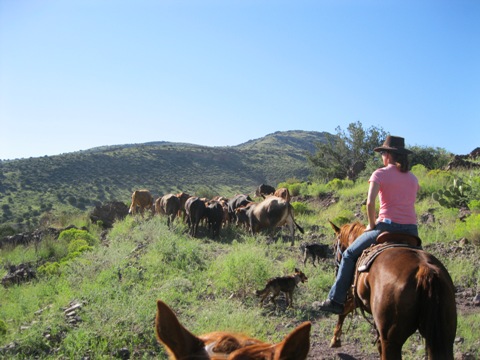by Sarah Schwennesen

Those in support of this bill declare that they seek the safest food for all Americans, while the skeptic points out that industrial food producers are feeling the squeeze by farmers markets/Community Supported Agriculture (CSA) shares and hope to quash this threat through regulation. Direct, local food sales were a fringe of the overall food market just a few years ago, but sales are up, some even say 105% in the past decade – double the rate of growth of overall agricultural sales. So it’s reasonable to contend that the ‘industrialists’ are feeling the squeeze.
I believe that S. 510 is simply a turf battle for who gets your food dollars. While small agricultural producers competed with the industrialists through local networks and personal presence (in contrast to shiny wrapping and sterile stores), the industrialists have brought the game back to their turf in order to exploit their home field advantage of capital reserves, lobbyists, established government networks, and economies of scale that will be only slightly impacted by the new regulations of S. 510.
To ameliorate these concerns, a proposed Tester–Hagan amendment would exempt small producers (defined as those that make under a certain amount of money, and that earn at least 50 percent of their revenue from direct-to-consumer sales like farmers markets or CSAs) from some of the bill’s requirements.
However, this amendment has come under attack by the ‘industry lobbyists’ who demand that all food should comply with the same regulations. I tend to agree with this line of thinking, though in a dissimilar manner. All food should be treated the same way; it should be unregulated. People should be free to make their food choices unimpeded by government regulations which are never a one-size-fits-all solution to perceived problems.
If people desire sterile food, then they can buy from industrial operations which will devise ways of “third party accreditation for safety and quality.” But if people crave ugly tomatoes with out-of-this-world taste, raw milk, eggs directly from the chicken’s nest, and meat from their local butcher, then they ought to have the right to make these purchases with their monies.
Yes, I grant that food safety is important, and our nation’s food safety is second to none—but that is in spite of limiting the food choices that people have, not because of it. In my cursory reading of S. 510, I perceive the real aim of the government is to maintain its modus operandi – growth. The bill calls for:
- Staff increases at FDA – 5,000 additional personnel focused solely on this bill’s mission by 2014.
- A budget increase (again focused on this mission alone) to the tune of $825,000,000.
- Overseas offices for the FDA – now they get the perks of the State Department employees.
- Expanded authority by the federal government – to collect fees from producers.
- Development of a national agriculture and food defense strategy – as any government employee knows, this means endless meetings, conferences, junkets, and potential for mission expansion.
- New Food and Agriculture Coordinating Councils – more federal employees.
- Grants to enhance food safety programs – how many small farmers do you know employ grant writers to ensure that they will win a grant?
The things in the bill which really raised my eyebrows were:
- Nothing about what happens if/when foreign facilities fail their inspections.
- The inability to re-audit foreign facilities within a 24-month period.
- The mandatory recall authority only applies to U.S. producers.
The public has lost confidence in the food system precisely because of centralization and overregulation which have ensured that problems in one area reverberate throughout the nation. Remember the billion egg recall? That likely wouldn’t have happened if thousands of small producers sourced their eggs to local grocers rather than one huge producer.
Judith McGeary, founder and executive director of the Farm and Ranch Freedom Alliance, doesn’t get it. At Grist, she writes that under the Tester-Hagan amendment, “producers who fall within [the Tester-Hagan amendment] will remain subject to all existing federal food safety laws and state and local regulation.” The existing regulations are incredibly burdensome to small producers and conceding that they are effective gives them credit they do not deserve.
When will people wake up and smell the smoke from the burning homestead? If we don’t stand up to the overreaching of the federal government, all of our family-owned ranches and farms, small abattoirs, and processing facilities will be lost because they cannot compete with the large corporations who have economies of scale to “comply” with government regulations and fees.
In the wide spectrum of public debate on S. 510, Michael Edwards’ recent piece was most poignant. He documented the dictatorships in China (1958-62) and Russia into the Ukraine (1920-39) which brought all food production under centralized control, thereby empowering the state and eliminating an independent sector of the populace. Not to mention, starving millions (45 million, Mao; 6 million, USSR) to death in the process.
Now I don’t claim that millions will starve as a result of S. 510, or that nefarious elements of the government are at work. But I do agree that excessive regulations are coordinated between private companies (their lobbyists) and government to curb a threat to their market share.
Thomas Jefferson, the original agricultural libertarian said, “If people let government decide what foods they eat and what medicines they take, their bodies will soon be in as sorry a state as are the souls of those who live under tyranny.” Let us hope that we don’t fall into this abyss.
Sarah Schwennesen is a local grassfed beef rancher at the Double Check Ranch in Arizona.


